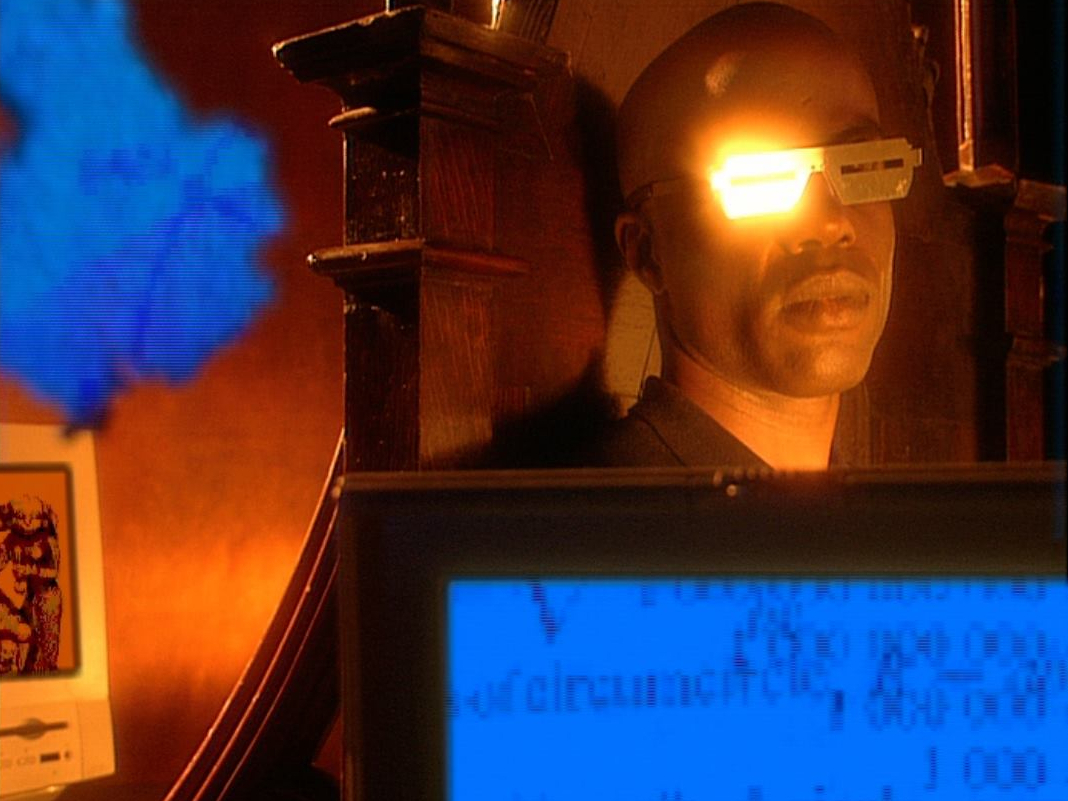
A sci-fi documentary about Africa, history and memory. Legend has it that in the 1930s itinerant blues man Robert Johnson sold his soul to the devil in order to play the blues. What Johnson got in return for his soul was a black secret: technology which would produce the history of black music. 200 years into the future another itinerant figure, the Data Thief, sells his soul for the knowledge of his future.
EN
“We propose to produce an interactive film which takes us on a voyage into the vaults of the internet; a voyage from the margins to the interstellar heart of black culture. The series will boldly chart a new interface, strike up connections and dialogues between diverse black interstellar parties who have too much in common, and yet for the most part remain unaware of each other’s existence – from Sun Ra, to Nichelle Nichols, to A Guy Called Gerald, to Samuel Delaney and beyond. Disparate names, places, events inform the stories we want to tell, the locations we want to trace. To aid us on this journey we have chosen a mythical figure from the African Diaspora – s/he’s a trickster/hustler/Stagolee in a new incarnation – the data thief.
Our data thief is a time-surfing roughneck, a shapeshifter, part human part cyborg, a gold-toothed, gold-chained recording angel from tomorrow. S/he’s on a mission. Transported self to 1995 via the internet, s/he’s on a cultural pillage; a future grave robber whose booty is ideas destined for a high-brow cerebral mind-park called Babel 17.”
John Akomfrah & Edward George1
“The film elaborates on a comment made earlier by Akomfrah that Britain ‘feared it had produced a surplus mutant population that had no roots. no connectedness, to home, elsewhere or here’. The mutant is traced to the ‘limit situation’ of slavery’s African body as labour/machine, re-figured as popular culture’s anxious image of the alien, robot or cyborg. Blacks, as Eshun points out, ‘lived the estrangement that sci-fi writers talk about’: alien abduction, spaceships, genetic transformation. For Eshun, black subjects enacted the man-machine interface in order ‘to explore the mutations that have already happened to them’. As the film repeatedly states: ‘The line between social reality and science fiction is an optical illusion’. We could not have a dearer demonstration of the philosophical conundrum of the human as historical being – that the past is not something that has happened to us, but is what afflicts us as a haunting from the future.”
Jean Fisher2
- 1John Akomfrah & Edward George, guiding script for The Last Angel of History, as published on Chimurenga.
- 2Jean Fisher, “In living memory... Archive and testimony in the films of the Black Audio Film Collective”, The ghosts of songs. The film art of the Black Audio Film Collective (Liverpool: Liverpool University Press, 2007) 28.

